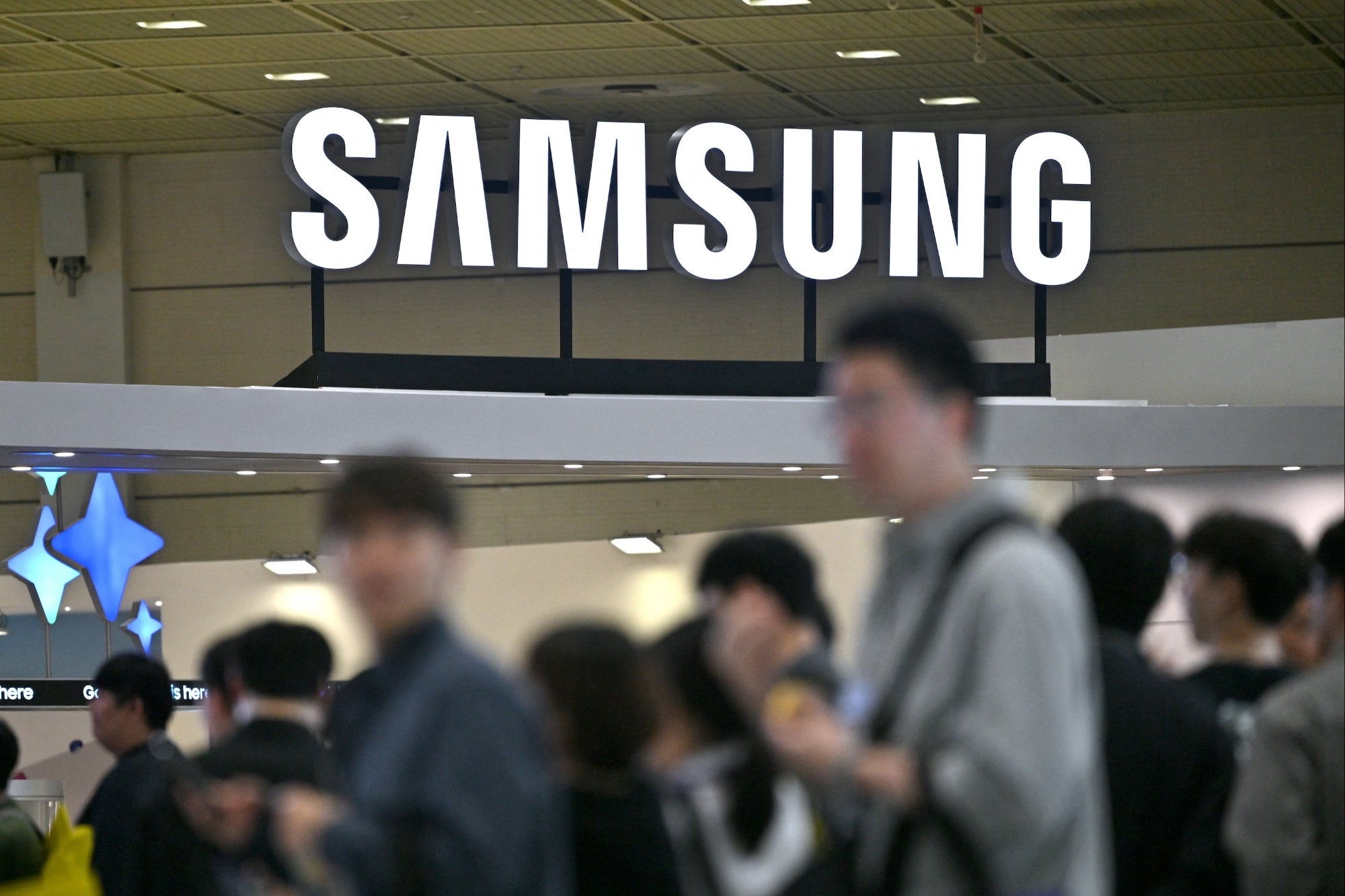AFFILIATE MARKETING
The role of story telling in affiliate marketing

Storytelling has been an essential part of human communication since the beginning of time. From ancient myths and legends to modern-day advertisements, stories have the power to captivate audiences and evoke emotional responses. In the context of affiliate marketing, storytelling can be a powerful tool for creating connections with audiences, building trust, and ultimately driving coconversions.
1.The role of storytelling in creating emotional connections with audiences: One of the main advantages of storytelling in affiliate marketing is its ability to create emotional connections with audiences. By telling a compelling story, you can tap into the hopes, fears, and desires of your target audience, making them more likely to engage with your content and take action.
For example, let’s say you are promoting a weight loss supplement as an affiliate. Instead of simply listing the benefits of the product, you could tell the story of someone who struggled with their weight for years and finally found success with the help of the supplement. By sharing this story, you are able to create an emotional connection with readers who may be struggling with similar issues, making them more likely to consider trying the product.
2.How stories can help showcase the benefits and value of products or services: In addition to creating emotional connections, storytelling can also be an effective way to showcase the benefits and value of products or services. By telling a story that highlights the features and benefits of the product, you can demonstrate why it is worth buying and how it can improve the lives of your target audience.
For example, if you are promoting a software product, you could tell the story of a business owner who was struggling to manage their finances before discovering the benefits of the software. By highlighting the specific features and benefits of the product within the context of a relatable story, you can make it more appealing to your target audience and increase the likelihood of conversions.
3.Examples of successful affiliate marketing campaigns that incorporate storytelling: There are countless examples of successful affiliate marketing campaigns that have used storytelling to great effect. One such example is the “Will it Blend?” campaign by Blendtec, which featured a series of videos in which the company’s CEO blended various items such as iPhones and golf balls to demonstrate the power of their blenders.
While the videos themselves were entertaining and viral-worthy, the underlying story was one of product demonstration and value. By showcasing the ability of their products to blend virtually anything, Blendtec was able to create a strong brand identity and generate a significant amount of sales through affiliate marketing.
Another example is the “MyProtein Transformation Challenge” campaign, which featured a series of success stories from real people who had achieved significant weight loss and fitness goals with the help of MyProtein products. By sharing these stories on social media and other channels, MyProtein was able to create a community of engaged customers and generate significant sales through affiliate marketing.
DON’T WASTE ANOTHER DAY TRYING TO FIGURE OUT AFFILIATE MARKETING ON YOUR OWN – ENROLL IN OUR COURSE NOW..! https://taplink.cc/affiliatemarketingcourse
While the power of storytelling in affiliate marketing is clear, it can be challenging to know how to incorporate it into your campaigns effectively. Here are some tips for using storytelling to drive conversions and build a loyal audience:
4.Understand your audience and tailor your story to their interests and needs: One of the keys to effective storytelling in affiliate marketing is understanding your audience and tailoring your story to their interests and needs. By knowing your target demographic and what they care about, you can create a story that resonates with them and addresses their pain points.
For example, if you are promoting a travel product to millennials, you might want to tell the story of a young couple who quit their jobs to travel the world and how the product helped make their dreams a reality. By speaking directly to the desires and aspirations of your target audience, you can create a story that is more likely to engage and inspire them.
5.Create a compelling narrative that highlights the product or service being promoted: While storytelling can be a powerful tool for creating emotional connections and building brand identity, it is important to remember that the ultimate goal is to drive conversions and sales. To that end, your story should always be focused on highlighting the benefits and value of the product or service being promoted.
For example, if you are promoting a health supplement, you might want to tell the story of a person who was struggling with their health before discovering the benefits of the product and how it transformed their life. By demonstrating the specific ways in which the product can improve the lives of your target audience, you can make it more appealing and increase the likelihood of conversions.
6.Incorporate visuals and multimedia to enhance the storytelling experience: Incorporating visuals and multimedia elements such as images, videos, and animations can help to enhance the storytelling experience and make it more engaging for your audience. This is particularly important in the era of social media, where attention spans are short and visual content tends to perform better than text-based content.
For example, you could create a series of videos that tell the story of someone who benefited from the product you are promoting, using images, animations, and other visual elements to bring the story to life and make it more compelling.
7.Avoid common pitfalls such as over-promising or using false claims in your storytelling: While storytelling can be a powerful tool for affiliate marketers, it is important to avoid common pitfalls such as over-promising or using false claims in your storytelling. Not only can these tactics damage your brand reputation and credibility, but they can also lead to legal and ethical issues.
Instead, focus on telling honest and authentic stories that highlight the real benefits and value of the products or services you are promoting. By doing so, you can build trust with your audience and create a loyal following that will be more likely to engage with your content and make purchases in the future.
In conclusion, storytelling has the power to transform ordinary affiliate marketing campaigns into compelling and engaging narratives that drive conversions and build brand loyalty. By creating stories that resonate with your target audience, highlighting the value of the products or services you are promoting, and using multimedia to enhance the storytelling experience, you can create content that captures attention and inspires action. However, it is important to avoid common pitfalls such as over-promising or using false claims, and to focus on telling honest and authentic stories that build trust and credibility with your audience. Ultimately, incorporating storytelling into your affiliate marketing strategy can be a highly effective way to stand out in a crowded marketplace and drive real results.
DON’T WASTE ANOTHER DAY TRYING TO FIGURE OUT AFFILIATE MARKETING ON YOUR OWN – ENROLL IN OUR COURSE NOW..! https://taplink.cc/affiliatemarketingcourse
AFFILIATE MARKETING
AI Will Transform the Workplace. Here’s How HR Can Prepare for It.

Opinions expressed by Entrepreneur contributors are their own.
Our workplaces are about to undergo an unprecedented level of transformation, and HR will take center stage. Artificial intelligence will dramatically reshape HR in a way that goes beyond recruiting, hiring and talent management. Leadership teams at all levels need to embrace this change to transform and lead their organizations forward.
It’s the people, and not the technology, that makes AI initiatives a success. Intrapreneurs, in particular, are the driving force behind it. As I shared in Fearless Innovation, I noticed this when I was working on the innovation agenda for the Great Places to Work study — the most innovative companies were those that had a leadership team that was embracing intrapreneurship and were open to change.
HR is the beating heart of any organization, and as such, it needs to take center stage in both adopting and leading ethical and innovative AI transformation across the organization.
Related: How Artificial Intelligence Is Reinventing Human Resources
4 tectonic shifts AI will drive in HR
1. A new wave of massive reskilling
As AI becomes more prominent across business functions, the need for new skills will only grow. Forty percent of enterprise leaders believe that their workforce would need to reskill as a result of AI and machine learning. In fact, research shows almost a third of all hours worked in the U.S. could be automated by 2030.
All of us need to reskill to some extent to be relevant in the AI era. Not only would people need to re-train, but generative AI is introducing a whole host of professions that have been non-existent until recently, from AI ethicists to human-AI interaction designers. Some of these roles might sound futuristic, yet they are becoming increasingly relevant as technology advances.
2. The great restructure
As automation takes center stage across more business functions, there will be the inevitable need for organizations to restructure and rethink how they work. This transition will not only involve the integration of new technologies but also introduce a shift in the workforce dynamics. Intrapreneurs will need to identify gaps both in skills and operational processes and forge brand-new roles for themselves and those they manage. HR must play a key role in enabling a smooth and easy transition in this regard. The transition will not be smooth or easy, and it’s only HR that has the capability to make it impactful.
3. Arrival of “digital humans”
“Digital human” may sound like an oxymoron, but that’s the term that’s starting to appear in business and operational plans. More roles, regardless of industry, are becoming digitally enhanced where some form of AI assistance is embedded in their everyday work. A real-life example is the introduction of the digital nurse — AI-powered healthcare agents which have already been proven to outperform human nurses in certain tasks.
Imagine the impact these digital roles will have on the workforce the more sophisticated and prevalent they become. Eventually, HR will need to create policies and systems in place that account for this new type of “staff augmentation.”
4. Regulating the robot
The threat of AI bias and misuse is serious. Not only can the technology put many jobs at peril, but potential improper implementation can expose organizations to serious liability and negatively affect the workforce. From avoiding bias to inclusivity, HR teams play a critical role in the ethical deployment and management of AI technologies.
HR professionals will be tasked with navigating the delicate balance between leveraging AI for efficiency and ensuring that its application upholds fairness, privacy and non-discrimination.
What HR intrapreneurs must do to embrace AI the right way
The future of work is being shaped by AI adoption, and its success hinges on the right approach from the outset. My experience shows that for successful organizations, one universal trait stands out: the presence of change agents. Every organization, regardless of size, benefits from intrapreneurs who are open to change and committed to spearheading transformation efforts. These intrapreneurs are pivotal in driving the future of work, as they help orchestrate the integration of new technologies into their business models.
HR and talent leaders should harness this dynamic, encouraging a symbiotic relationship with intrapreneurs to develop customized solutions for AI adoption, ensuring that they are not just keeping pace with technological advances but are actively shaping their trajectory.
Securing a seat at the table:
HR should take a proactive stance in the adoption of AI, even if it is still in its early stages within your organization. By securing a position at the forefront of the AI initiative, HR can and should facilitate and guide the entire organization in embracing this significant change.
As AI has the potential to impact every facet of the organization, it is imperative for HR to not only understand and advocate for this technology but also lead its integration across all departments. HR should encourage and support intrapreneurs and all employees to leverage AI in their daily tasks, demonstrating its value not just for operational efficiency but for personal and professional growth as well.
Master the technology:
To effectively navigate and regulate AI, HR must first understand it thoroughly. Grasping the full potential of this technology is crucial for reaping its extensive benefits. HR plays a vital role in identifying the necessary tools and skills that employees must acquire and then integrating these learnings into daily work practices.
Before implementing AI more broadly, HR should initiate comprehensive training programs that not only educate but also reassure employees about AI’s role in the future of the business. By leading these educational initiatives, HR can shape the structure and effectiveness of these programs, ensuring they meet the needs of the organization and its workforce.
Related: 3 Ways to Prepare Your Business For an AI Future
Looking ahead
Generative AI has the transformative potential to redefine the business landscape, but realizing this vast potential hinges on more than just the adoption of technology. It critically depends on the talent within the workforce, driven by HR and bold intrapreneurs. These visionary leaders don’t just implement new tools; they exemplify their use, demonstrating the profound impact of AI across every level of the organization.
HR plays a pivotal role in fostering this environment, enabling intrapreneurs to guide and inspire every individual they touch. Together, they turn each employee into a catalyst for change, igniting a widespread passion for innovation that deeply resonates and sustains long-term success.
AFFILIATE MARKETING
Samsung: 6-Day Workweek For Execs, Company in Emergency Mode

Four-day workweeks might have all the buzz, but one major tech company is going in the opposite direction.
Samsung is implementing a six-day workweek for all executives after some of the firm’s core businesses delivered lower-than-expected financial results last year.
A Samsung Group executive told a Korean news outlet that “considering that performance of our major units, including Samsung Electronics Co., fell short of expectations in 2023, we are introducing the six-day work week for executives to inject a sense of crisis and make all-out efforts to overcome this crisis.”
Lower performance combined with other economic uncertainties like high borrowing costs have pushed the South Korean company to enter “emergency mode,” per The Korea Economic Daily.
Related: Apple Is No Longer the Top Phonemaker in the World as AI Pressure and Competition Intensifies
Executives at all Samsung Group divisions will be affected, including those in sales and manufacturing, according to the report.
Samsung had its worst financial year in over a decade in 2023, with the Wall Street Journal reporting that net profit fell 73% in Q4. It also lost its top spot on the global smartphone market to Apple in the same quarter, though it reclaimed it this year.
Though employees below the executive level aren’t yet mandated to clock in on weekends, some might follow the unwritten example of their bosses. After all, The Korea Economic Daily reports that executives across some Samsung divisions have been voluntarily working six days a week since January, before the company decided to implement the six-day workweek policy.
Entrepreneur has reached out to Samsung’s U.S. newsroom to ask if this news includes executives situated globally, including in the U.S., or if it only affects employees in Korea. Samsung did not immediately respond.
Research on the relationship between hours worked and output shows that working more does not necessarily increase productivity.
A Stanford project, for example, found that overwork leads to decreased total output. Average productivity decreases due to stress, sleep deprivation, and other factors “to the extent that the additional hours [worked] provide no benefit (and, in fact, are detrimental),” the study said.
Related: Samsung’s Newest Galaxy Gadget Aims ‘To See How Productive You Can Be’
Longer hours can also mean long-term health effects. The World Health Organization found that working more than 55 hours a week decreases life expectancy and increases the risk of stroke by 35%.
The same 55-hour workweek leads to a 17% higher risk of heart disease, per the same study.
AFFILIATE MARKETING
John Deere Hiring CTO ‘Chief Tractor Officer,’ TikTok Creator

This article originally appeared on Business Insider.
Agriculture equipment company John Deere is on the hunt for a different kind of CTO.
The brand on Tuesday announced a two-week search to find a “Chief Tractor Officer” who would create social media content to reach younger consumers.
One winning applicant will receive up to $192,300 to traverse the country over the next several months showcasing the way John Deere products are used by workers, from Yellowstone National Park to Chicago’s Wrigley Field and beyond.
“No matter what you do — whether it’s your coffee, getting dressed in the morning, driving to work, the building you go into — it’s all been touched by a construction worker, a farmer, or a lawn care maintenance group,” Jen Hartmann, John Deere’s global director of strategic public relations, told AdAge.
To kick off the search, John Deere tapped NFL quarterback Brock Purdy (who will presumably be a bit busy this Fall to take the job himself) to star in a clip in which he attempts to set out on a road trip in an industrial tractor.
Suited up in the obligatory vest, work boots, and John Deere hat, Purdy’s progress is interrupted by teammate Colton McKivitz hopping into the cab while a string of messages floods in from other athletes and influencers expressing interest in the job.
The clip also represents the first time that the 187-year-old company has used celebrities to promote itself, Hartmann told AdAge.
According to the contest rules, entrants have until April 29 at midnight to submit a single 60-second video making their pitch for why they should be the face and voice of the company.
In addition, entrants must live in the 48 contiguous states or DC — sorry Hawaii and Alaska residents. Interestingly, any AI-generated submissions are prohibited, too.
Videos will be judged against four categories — originally, creativity, quality, and brand knowledge — after which five finalists will be chosen and notified after May 17.
-

 SEARCHENGINES6 days ago
SEARCHENGINES6 days agoGoogle Core Update Volatility, Helpful Content Update Gone, Dangerous Google Search Results & Google Ads Confusion
-

 SEO6 days ago
SEO6 days ago10 Paid Search & PPC Planning Best Practices
-

 MARKETING7 days ago
MARKETING7 days ago2 Ways to Take Back the Power in Your Business: Part 2
-

 MARKETING5 days ago
MARKETING5 days ago5 Psychological Tactics to Write Better Emails
-

 SEARCHENGINES5 days ago
SEARCHENGINES5 days agoWeekend Google Core Ranking Volatility
-

 MARKETING6 days ago
MARKETING6 days agoThe power of program management in martech
-

 PPC7 days ago
PPC7 days agoCritical Display Error in Brand Safety Metrics On Twitter/X Corrected
-

 SEO6 days ago
SEO6 days agoWordPress Releases A Performance Plugin For “Near-Instant Load Times”













